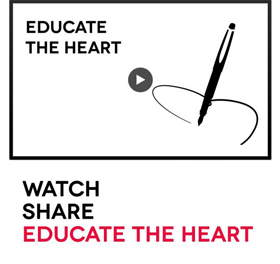Helping Ourselves by Helping Others: Stephen Post

 Dr. Stephen Post will be speaking at BCIT (map) on April 29 at 7:00 pm, doors - 6:30 pm. Tickets: $30 ($20 seniors and students) plus service charge, available at VancouverTix.com or by phone at 604-629-8849. For more information on the event, visit the Dalai Lama Center site.
Dr. Stephen Post will be speaking at BCIT (map) on April 29 at 7:00 pm, doors - 6:30 pm. Tickets: $30 ($20 seniors and students) plus service charge, available at VancouverTix.com or by phone at 604-629-8849. For more information on the event, visit the Dalai Lama Center site.
APRIL 19 - When we we’re enduring tough times, it’s easy to look inwards and try to fix our problems by trying to fix ourselves. However, research has shown that when battling stress, the most effective way to cope is to focus on helping others.
Dr. Stephen Post, who will visit Vancouver on April 29 for The Gift of Giving, Compassion and Hope, has been leading the scientific study on the benefits of giving for over two decades. The DLC spoke with Dr. Post to learn a little bit more about what he calls the “giver’s glow”.
“Time and again, studies have shown that people can negotiate the tough times by diverting attention from the self and the problems of the self and focusing on others,” says Dr. Post.
Dr. Post believes that now, more than ever, we are facing increasingly difficult situations that bring many stresses into our lives.
“Economically, not just in America, but in the world, it’s hard times,” he says. “Then we have the issues in the Middle East and with Japan. How do we navigate through these kinds of shadowy scenes in life?”
“It turns out that the single strongest therapy is to actively contribute to the lives of others.”
Dr. Post led a study looking at how widows and widowers deal with bereavement. What he found was that those who had taken time to contribute to the community reported more ease in handling the grief associated with losing a loved one.
He also worked with Alcoholics Anonymous to investigate some of the keys to success when battling relapses into alcoholism.
The twelfth and final step of the AA program is to help others with their addiction. Those who completed this step reported a 40 per cent success rate in staying sober one year after completion. Those who omitted this step only reported a 22 per cent success rate.
“In so many different areas of medicine – with cancer survivors, people with multiple sclerosis, people with mild or moderate depression – one of the best things you can do is get in touch with that capacity to care helpfully for others.”
What these studies are really telling us, says Dr. Post, is that when we help others, we’re really helping ourselves.
“When people reconnect with the compassion and capacity they have, which sometimes lies dormant, they can actually handle the challenges of life a lot better.”
Don't forget to Share Your Voice! Let us know how YOU have been able to help yourself by helping others.







Comments
Post new comment